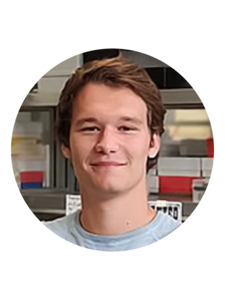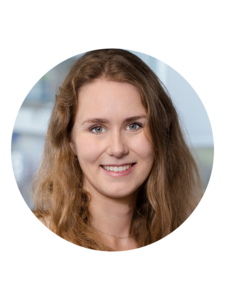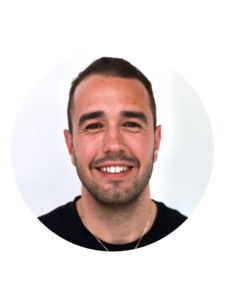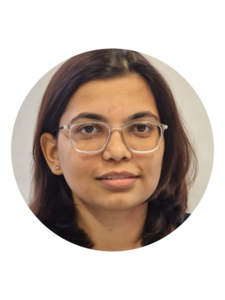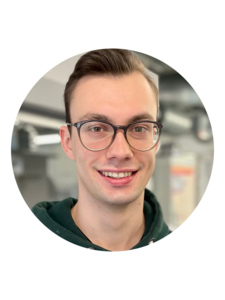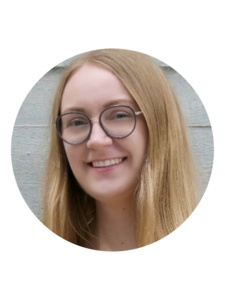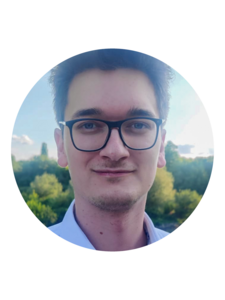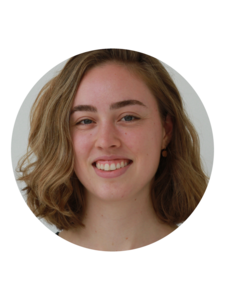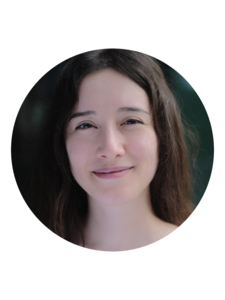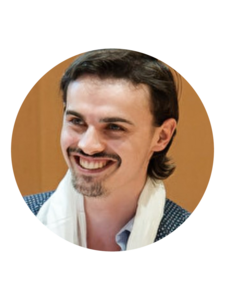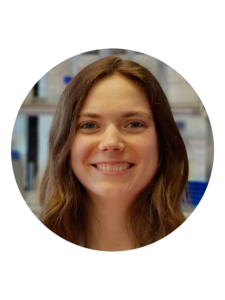
Future Leaders in RNA-based Medicine
Meet our RNAmed students
The graduate program “RNAmed – Future Leaders in RNA-based Medicine” takes a multi-disciplinary approach to provide PhD students with the necessary knowledge and skills to pursue a career in the rapidly developing field of RNA-based medicine.
Currently, 20 PhD students in Würzburg, Munich and Regensburg are enrolled in the program, which is funded by the Elite Network Bavaria (Germany).
Our RNAmed Students
Arpan Banerjee

Arpan Banerjee, Würzburg
Arpan Banerjee completed his combined BS-MS (major in Chemistry) in July 2024 at the Indian Association for the Cultivation of Science, Kolkata (India). In his BS-MS thesis, he focused on synthetic optimization and backbone modifications of morpholino antisense oligonucleotides, contributing to the development of next-gen ASO chimeras. In August 2024, he started his PhD at the University of Würzburg (Germany) in the group of Prof Dr Claudia Höbartner as part of the graduate program RNAmed – Future Leaders in RNA-based Medicine. His doctoral research focuses on stabilizing ribozymes in cellular environment by utilizing third-generation antisense oligonucleotide modifications.
Brent Cuveele
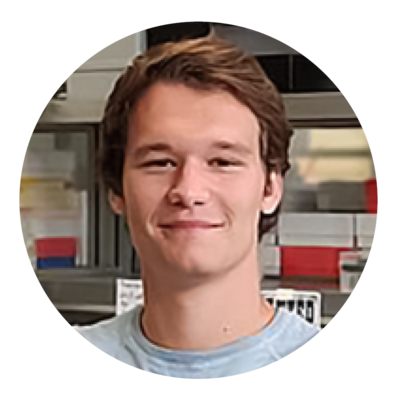
Brent Cuveele, Regensburg
Brent Cuveele obtained his MSc in Biomedical Sciences and 'Tropical and Infectious Diseases' at the University of Antwerp (Belgium). His interests in RNA biology and RNA-based medicine strengthened when he completed his master's thesis in the group of Dr. Michalis Kotsyfakis at the Institute of Parasitology in Czech Republic. Pursuing a PhD in the research group of Prof. Dr. Gunter Meister at the University of Regensburg (Germany) as part of the graduate program “RNAmed – Future Leaders in RNA-based Medicine” now gives him the opportunity to further explore and study the fascinating field of RNA biology.
Anna Fürst
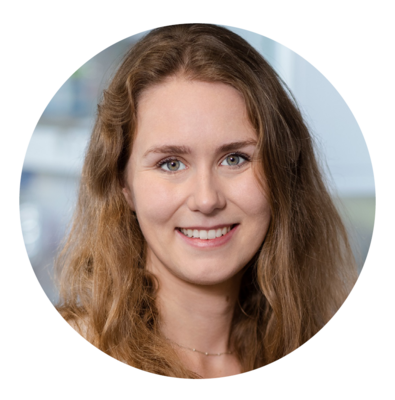
Anna Fürst, Munich | Photo © Jörg Steffens
Anna Fürst studied Molecular and Industrial Biotechnology at the Technical University of Munich (Germany). In 2020, she joined ISAR Bioscience GmbH’s Stem Cell Platform as a master’s student. After successfully completing her thesis titled “Generation of a human model of juvenile idiopathic arthritis using stem cell and CRISPR-Cas9 technologies,” she continued her work at c where she recently started her PhD as part of the graduate program “RNAmed – Future Leaders in RNA-based Medicine”. She works on the generation and characterization of human-induced pluripotent stem cell (hiPSCs)-derived models of inflammatory diseases. Specifically, her PhD project focuses on the role of macrophages in Crohn's disease. Using CRISPR-Cas9, she creates her gene(s)-of-interest knockout hiPSC lines, which she then differentiates into macrophages. The phenotype and identity of these cells are then to be analyzed and compared to human primary samples in a wide array of functional and characterization assays. The ongoing readouts are focused on crucial macrophage functions like phagocytosis, cell migration, and cytokine secretion, as well as the analysis of macrophage identity by marker expression on RNA and protein levels. As per the outlook, the generated models are to be used for therapy development.
Yasmin Gärtner
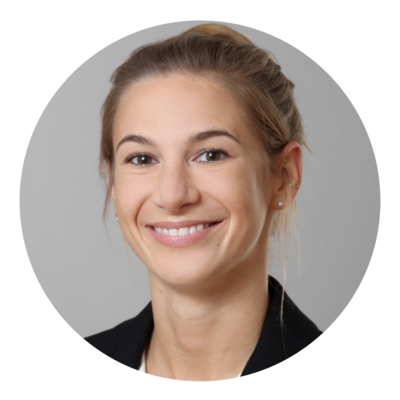
Yasmin Gärtner, Munich | Photo © Goschütz Thomas
Yasmin Gärtner began her career in the chemical industry before attending university, where she completed her M.Sc. in Biochemistry at the Technical University of Munich (TUM). Driven by a deep interest in understanding the mode of action of therapies to identify potential areas for improvement, she started her PhD project in the group of Prof. Dr. Thomas Carell at the Ludwig-Maximilian-University in Munich (LMU) in June 2021. Her research focuses on the targeted delivery of small interfering RNAs (siRNAs), aiming to enhance therapeutic efficacy through improved selective uptake. Yasmin joined the RNAmed program in December 2023.
Giorgia Gerolimetto

Giorgia Gerolimetto, Würzburg
Giorgia Gerolimetto graduated in Pharmaceutical Chemistry and Technology from the University of Trieste (Italy) in March 2022. Her educational and professional background include experience in both academic and industrial settings. After working in the R&D Formulation Department at Alfasigma S.p.A in Rome (Italy), she joined Prof. Dr. Dr. Meinel's group as a PhD student to further develop her knowledge in formulation science. Currently, as part of the graduate program “RNAmed – Future Leaders in RNA-based Medicine,” she is focused on studying lipid nanoparticles for delivering mRNA therapeutics.
Noah Holzleitner
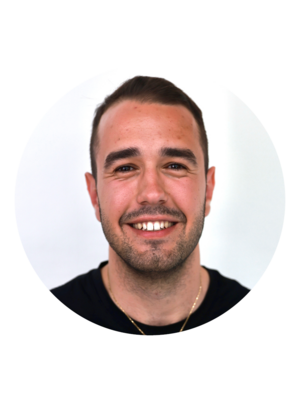
Noah Holzleitner, Munich | Photo © TUM / Julian Grünewald
Noah Holzleitner is a PhD student at the Center for Organoid Systems in the Grünewald group, TU Munich, since October 2023. His research focuses on using computational tools to design more functional gene-editing proteins. With a background in Biochemistry (BSc, Leipzig University, Germany) and Medical Science with a focus on Bioinformatics (MSc, Uppsala University, Sweden), Noah’s love for deep learning and its applications in biology led him to explore AI-driven protein engineering. He combines these tools with studies on post-translational modifications (PTMs) to improve the stability and performance of RNA-guided gene-editing proteins. His goal is to create smaller, more effective CRISPR proteins and understand how different delivery methods influence protein function. This could help overcome challenges in gene therapy and improve treatments for genetic diseases. Noah joined the RNAmed program in November 2024.
Charlotte Kamm

Charlotte Kamm, Würzburg | Photo © Nik Schölzel
Charlotte Kamm obtained her MSc in Molecular Biosciences from Heidelberg University (Germany) in December 2022. For her master's thesis, she joined the Beisel lab at the Helmholtz Institute Würzburg (Germany), where she explored a novel gene editor in E. coli. As part of the graduate program “RNAmed – Future Leaders in RNA-based Medicine,” she has been continuing her journey in the Beisel lab as a PhD student since March 2023. Her current research focuses on characterizing and engineering DNA-modifying proteins for gene editing purposes.
Pranjal Meel
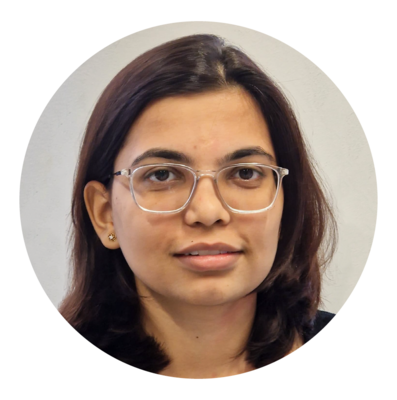
Pranjal Meel, Würzburg
Pranjal Meel received her integrated BSc-MSc dual degree in Biological Sciences from the Indian Institute of Science Education and Research, Mohali (ISER Mohali), India, in June 2023. She worked on the cell biology of RNA viruses as part of her master's thesis at IISER Mohali. In October 2023, she joined the lab of Prof. Dr. Utz Fischer for her PhD. Currently, as part of the graduate program “RNAmed – Future Leaders in RNA-based Medicine,” she is focused on studying the poxvirus transcription machinery.
Sarah Nentwich

Sarah Nentwich, Würzburg | Photo © Nik Schölzel
Sarah Nentwich obtained her MSc at the University of Applied Sciences Mittelhessen (Germany) in Biotechnology/Biopharmaceutical Technology. She worked on the structural analyses of human papillomavirus using mass spectrometry as part of her master’s thesis at the Leibniz Institute of Virology in Hamburg (Germany). In March 2023, she joined the Vogel lab as a PhD student to study programmable antibiotics based on antisense oligonucleotides (ASOs) as part of the graduate program “RNAmed – Future Leaders in RNA-based Medicine”.
Shounok Panja

Shounok Panja , Würzburg
Shounok Panja received his M.Sc. in Biotechnology from the Regional Centre for Biotechnology, Faridabad, India. For his M.Sc. thesis, he worked on using small molecule inhibitors for targeting DNA-RNA hybrid G-quadruplexes in proto-oncogenes such as NRAS (neuroblastoma RAS). He joined the RNAmed program for his PhD research in July 2024 and aims to explore novel functions of RNA-guided DNA nucleases in gene expression regulation in pathogenic bacteria. He is working in the group of Prof. Dr. Cynthia Sharma at the Institute of Molecular Infection Biology, University of Würzburg.
Niklas Petzold
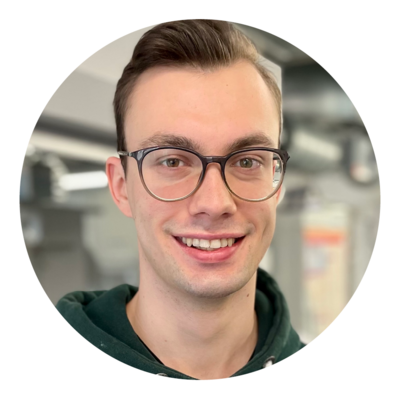
Niklas Petzold, Würzburg | Photo © TUM / Sandro Meunier
Niklas Petzold received his MSc in Molecular Biomedicine at the Heinrich-Heine-University in Düsseldorf (Germany), where he explored the role of platelets on the formation and progression of abdominal aortic aneurysms. He is pursuing his PhD project since 2021 in the research group of Prof. Dr. Dr. Stefan Engelhardt at the Institute of Pharmacology and Toxicology at the Technical University of Munich (Germany) and has joined the graduate program “RNAmed – Future Leaders in RNA-based Medicine”. His doctoral project focuses on elucidating the function of long non-coding RNAs (lncRNAs) in cardiac macrophages, utilizing pooled CRISPR screens. With their high tissue specificity, lncRNAs present promising therapeutic targets for treating cardiac disease, the leading cause of death worldwide.
Stina Rademacker

Stina Rademacker, Munich
Stina Rademacker studied Pharmacy in Münster (Germany) and graduated in 2020. Following an internship at Bayer AG in the biotech group of the Manufacturing Science and Technology department and an internship at the Birken Apotheke in Cologne (Germany), she obtained her license as a pharmacist in 2021. She began her work in the research group of Prof. Olivia Merkel as part of the graduate program “RNAmed – Future Leaders in RNA-based Medicine” in November 2022 and is currently working in the field of pulmonary RNA delivery via lipid nanoparticles.
Dominik Rappert

Dominik Rappert, Würzburg
Dominik Rappert studied Chemistry at the University of Würzburg (Germany), where he graduated with a Bachelor's degree in 2021. He stayed in Würzburg to pursue his Master studies in Chemistry during which he first got to know the field of biological and nucleic acid chemistry. After a semester abroad at the San Diego State University (USA) he joined the lab of Prof. Dr. Claudia Höbartner for his Master's thesis, working on modified RNA oligonucleotides for the investigation of Toll-like receptors. After graduating, he stayed in the Höbartner group and started his PhD project as part of the graduate program "RNAmed – Future Leaders in RNA-based Medicine" in March 2024. He is now particularly interested in chemical modifications for efficient delivery of RNA therapeutics.
Marina Sauer
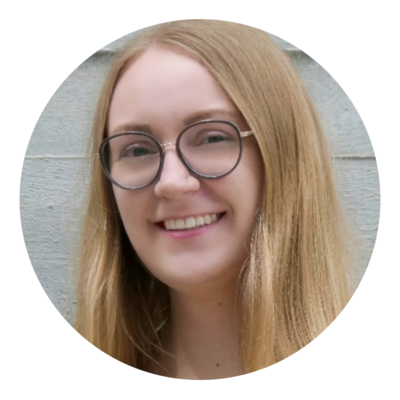
Marina Sauer, Regensburg| Photo © Sophie Kliegl
Marina Sauer graduated with a M.Sc. degree in Molecular Medicine. In her master thesis under the supervision of Prof. Dr. Selim Corbacioglu and PD Dr. Gunhild Sommer, she focused on the characterization of a tumor-suppressive small non-coding RNA. Marina has a strong interest in RNA biology with a focus on clinical applicability and translation. Consequently, she participates in the graduate program "RNAmed - Future Leaders in RNA-based Medicine". She works in the lab of Prof. Dr. Corbacioglu at the University Hospital of Regensburg (Germany). Her current project involves identifying a RNA-based prognostic and diagnostic biomarker signature via extracellular vesicles to assess endothelial damage in systemic vasculopathy patients, using the concept of liquid biopsy. Marina's research aims to advance non-invasive diagnostic methods in clinical settings.
Mario Seimel
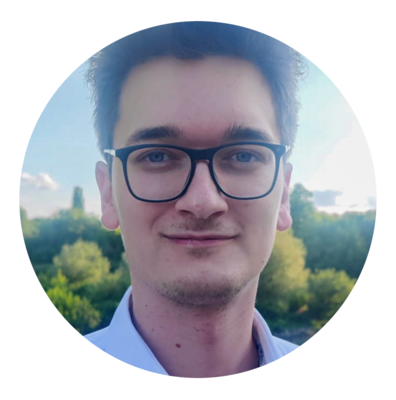
Mario Seimel, Regensburg
Mario Seimel obtained his MSc in Molecular Microbiology from Regensburg University (Germany) in July 2023. For his master’s thesis, he joined the Grohmann lab, where he researched on CRISPR-Cas adaptation. As part of the graduate program “RNAmed – Future Leaders in RNA-based Medicine,” he continues in the Grohmann lab as a PhD student. His current research focuses on CRISPR-Cas9 and advancing its potential in medical sciences.
Maya Sugden
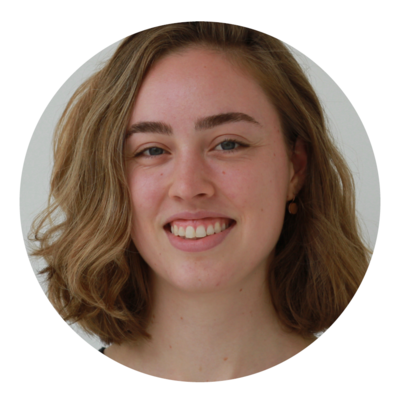
Maya Sugden, Munich
Maya Sugden began her scientific studies at the University of Sydney (Australia), studying a Bachelor of Science (Advanced) and majoring in Molecular Biology and Psychology. She then went on to complete an Honours in Applied Medical Science, where her thesis centred on the use of epigenetic editing tools as a therapeutic approach to treating rare, X-linked disorders of the liver. In October 2023 she began her PhD under the guidance of Professor Julian Grünewald at the Technical University of Munich (Germany), following her interesting in translational research by working to improve cell specific uptake of lipid nanoparticles (LNPs) for delivery of genetic material.
Sinem Sürmeli
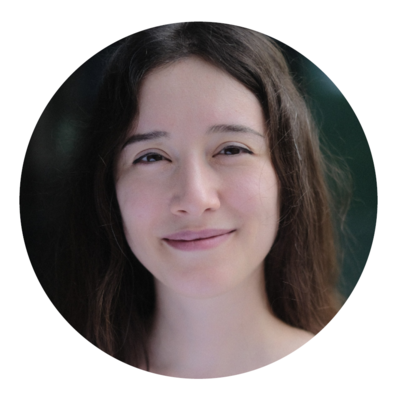
Sinem Sürmeli, Munich
Sinem Sürmeli completed her MSc in Pharmaceutical Biotechnology at the Martin Luther University of Halle-Wittenberg (Germany). During her MSc, she focused on utilizing CRISPR tools on patient-derived organoids to improve chemotherapies in a personalized manner. She has a strong belief in the potential clinical application of CRISPR tools and aspires to contribute to leading the way towards a future where these tools are extensively employed in clinics. Her particular interest lies in targeting challenging organs like the heart. She started her PhD at the Technical University of Munich (Germany) as part of the graduate program “RNAmed – Future Leaders in RNA-based Medicine” in March 2023.
Alexandre Trubert
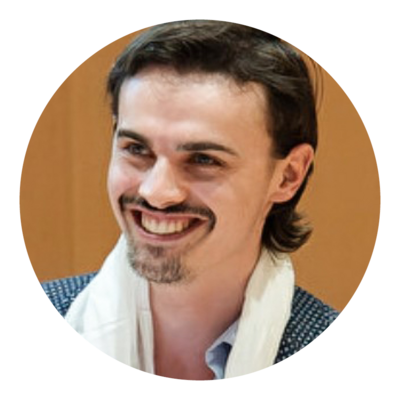
Alexandre Trubert, Würzburg
Alexandre Trubert is a French biotech engineer who completed his MSc in system and synthetic biology. During his MSc, he worked on various topics, including the interactions between immune cells and the microbiome, vaccine-induced immunity, and autoimmune diseases such as type 1 diabetes. Alexandre is passionate about developing genetic modification technologies and their applications in immunotherapy to target specific diseases. In October 2023, he began his PhD at the University Hospital of Würzburg in the team of Dr. Karl Petri. His research focuses on using innovative base and prime editing methods to enhance CAR-T cell therapy targeting multiple myeloma. Alexandre aims to advance the field of genetic engineering and its clinical applications in immunotherapy.
Tess Vosman
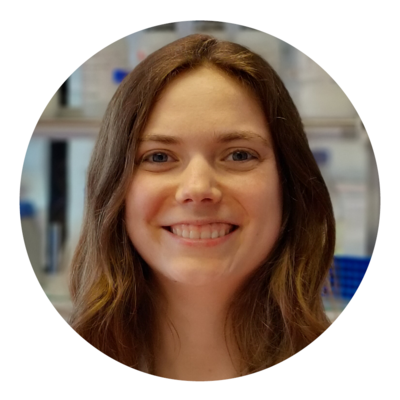
Tess Vosman, Munich | Photo © Rentmeister Group
Tess Vosman finished her MSc in Medicinal Chemistry at the Radboud University in Nijmegen (The Netherlands). She first got into contact with RNA research during her master thesis in the lab of Willem Velema, where she worked on the characterization of riboswitches using photo-affinity probes. In 2023, she started her PhD in the group of Andrea Rentmeister in Münster (Germany) to work on controlled mRNA translation using 5’ cap analogues. The next year, she moved with the lab to the Ludwig-Maximilian-University (LMU) in Munich where she joined the “RNAmed – Future Leaders in RNA-based Medicine” program in November 2024.
Xiaoxuan Wang

Xiaoxuan Wang, Würzburg
Xiaoxuan Wang holds a dual BSc in Chemical Engineering and Applied Chemistry from universities in China and Germany. She completed her MSc in Chemistry at Ludwig Maximilian University of Munich (Germany). Her research has primarily centered on physico-chemical characterization techniques, with her master's thesis focusing on the characterization and application of polyplexes for delivering siRNA. As part of the graduate program “RNAmed – Future Leaders in RNA-based Medicine,” Xiaoxuan Wang is pursuing her PhD under the supervision of Prof. Dr. Dr. Lorenz Meinel since March 2023. Her present research is dedicated to understanding the structural aspects of lipid nanoparticles for RNA delivery, aiming to uncover the mechanisms that drive their effectiveness.
Contact



